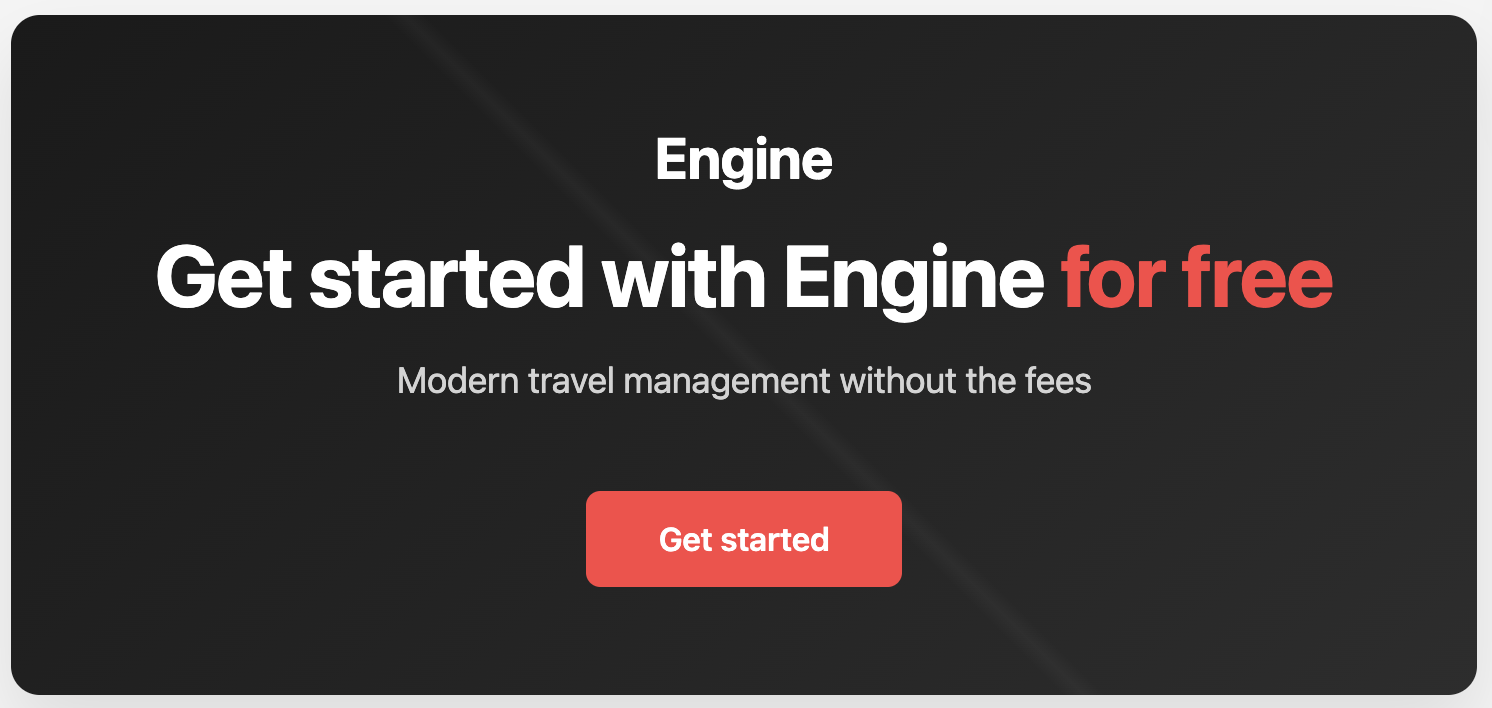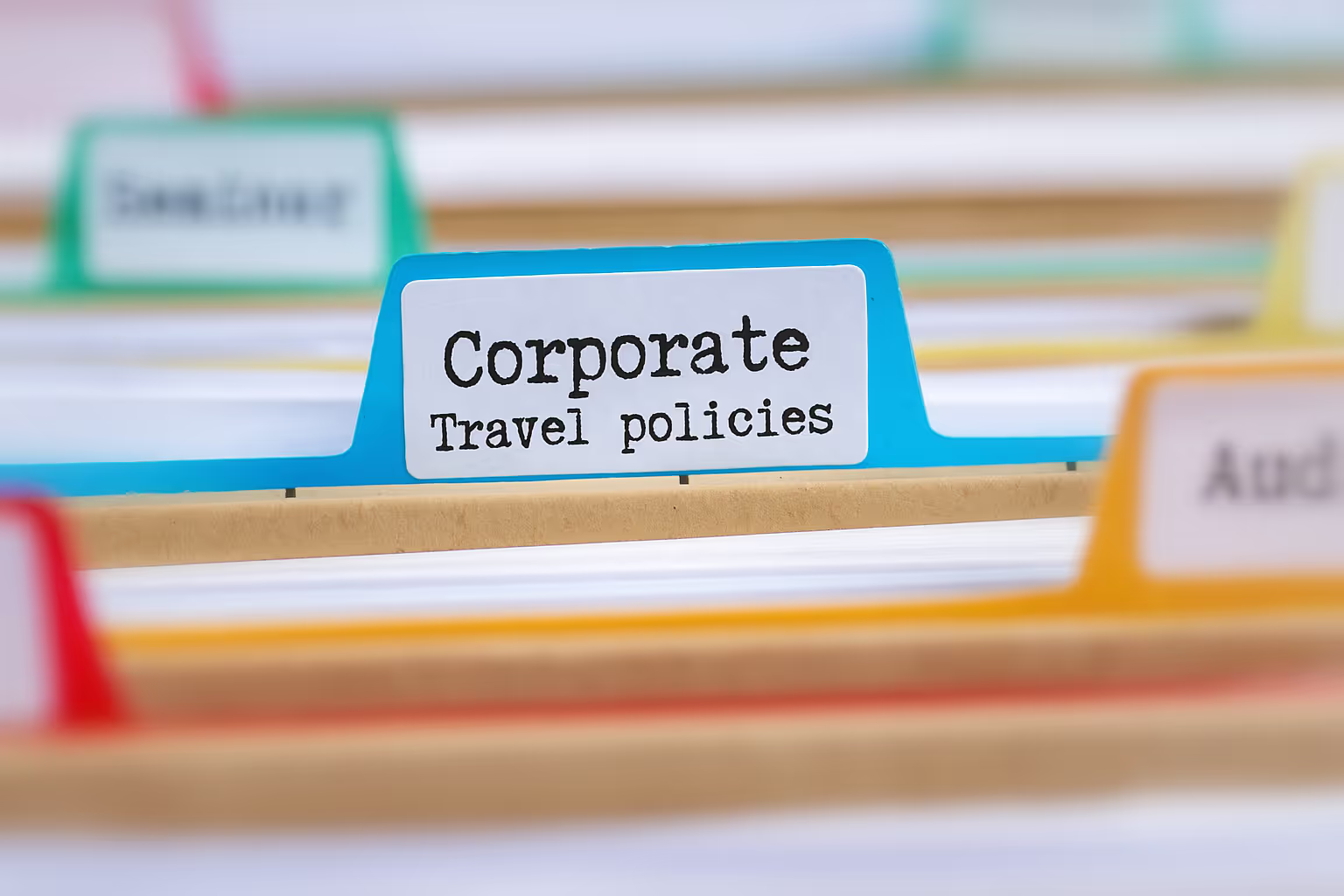How to Avoid Penalty Fees When Energy Projects Shift Timelines
.jpg)
Permitting drags on, a transformer sits in customs, and the client adds two new wells. Suddenly, your two-week install becomes a five-week slog. Delays hit every energy project. Regulatory bottlenecks and supply-chain hiccups stall crews without warning.
When the start date slips, every hotel you locked in at rock-bottom non-refundable rates turns into penalty fees.
You feel the pain first. Instead of managing the next job, you're stuck on hold with hotel chains, begging for waivers while Finance asks why the lodging budget is blown. Field supervisors text at midnight because crews have nowhere to sleep tomorrow.
Engine eliminates this chaos with a five-step framework that replaces phone trees with one-click changes. Every booking is eligible for flexible cancellation protection. No personal card holds. Real-time spend data flows straight to Finance.
You get total control and visibility over every dollar, even when timelines shift.
Build a Five-Step Framework for Penalty-Free Crew Travel
Energy project schedules are anything but static. Permits stall, suppliers miss shipping windows, and a single design tweak can push milestones by weeks. Regulatory bottlenecks alone can freeze progress while you wait for yet another approval stamp, as seen in shale and renewables projects that languish in permitting limbo. Add supply-chain hiccups, labor shortages, or poor sequencing, and travel logistics turn into a moving target.
The five-step framework below gives you control when timelines shift, keeping crews housed without penalty fees eating your budget:
Step 1: Plan — Lock in a Cushion Before Day One
Build a two-week buffer into every project calendar and treat it as non-negotiable. Review crew counts at Friday stand-ups to spot head-count swings early and adjust holds before hotels hit you with last-minute penalties.
Step 2: Book — Combine the Lowest Non-Refundable Rate with Flex
Fully refundable rooms look safe but cost a premium. Pairing a non-refundable rate with Flex protection typically lands 15-30% under the refundable price while still giving you one-click cancellation. Savings without the markup—that's the point.
Step 3: Tag — Force a Job Number at Checkout
Require a project code or PO before anyone presses "confirm." One project manager put it bluntly: "I can finally pull every reservation by project in seconds." Proper tagging routes every stay to the right cost center and eliminates the reconciliation nightmare at month-end.
Step 4: Change — Swap, Shorten, or Cancel Without a Phone Tree
Plans change at 2 AM; you shouldn't be on hold with a hotel's night auditor. Modify or cancel in the app, watch penalties disappear, and move on. Time back to the field, not the phone.
Step 5: Reconcile — Hand Finance One Clean File
Export a project-level CSV every Monday and e-mail it to Finance. They get audit-ready data; you get out of the reconciliation nightmare. Miscommunication is the top driver of schedule overruns—clear, tagged data eliminates one more place delays can hide.
Use the framework end-to-end and you control every booking and dollar, regardless of how often the timeline moves.
Build Bulletproof Approval and Budget Controls
Timeline shifts happen, but the fix isn't reacting faster. It's preventing bad bookings in the first place. That starts with hard approval rules you can set up in under five minutes.
Set your rate cap to block any hotel over $175 per night. Configure distance-to-site rules that only show properties within 10 miles of the job. Add a Flex safeguard that requires Flex on stays longer than three nights, so you can cancel without paying the premium for fully refundable rates. Create the rule once, choose your approvers, and Engine enforces it automatically.
Field supervisors see compliant options; anything outside policy routes for instant approval, or is stopped cold. No grey area, no reconciliation surprises. Multi-level approvals keep Finance in control while Operations moves fast. A site superintendent can green-light a last-minute room block, but anything breaching the rate cap still hits the controller's desk before a single dollar leaves the budget.
Every reservation gets tagged with the correct project code on checkout, giving you project-level accountability without chasing spreadsheets. Companies that lock in these guardrails slash out-of-policy charges and last-minute penalties that sap margins when schedules slip.
Tag and Track Travel by Job for Real-Time Visibility
Every reservation should tell you two things at a glance: which job it supports and which budget it hits. Make the project code and cost center mandatory fields at checkout—no code, no booking. Once every room is tagged, the live dashboard turns into a single source of truth. You see today's spend stacked against the approved budget for each job, not weeks later when the receipts surface.
When timelines slide—and they will—untracked accommodation costs snowball fast. Large-scale projects that miss milestones routinely face cost overruns tied to extended crew stays and rework travel. Real-time tagging stops that bleed. You spot overruns while there's still time to act—shift crews, adjust per diem, or pull the plug on unused rooms.
Engine manages over 23 million nights, every one traceable by job number. That scale proves the system handles everything from a two-person inspection team to simultaneous multi-state turnarounds without losing financial control.
Set up automated weekly email reports so project managers stay accountable without logging in. Open the dashboard, filter by project, and hit "Schedule Report." Choose "Monday 6 AM"—before the stand-up—select CSV or PDF and add every stakeholder who signs off on spend.
Now everyone walks into the week knowing the burn rate. Tag once, track always, and keep every dollar where it belongs.
Handle Last-Minute Changes, Refunds, and Credits
Project timelines shift, and crews don't land where the schedule says they will. When changes hit at midnight, you can't afford phone-tree chaos or a $6,000 no-show penalty. Engine protects every reservation when projects move.
Project Delay: Regulatory reviews run long, or critical components sit in customs. Get your money back—not credits, actual refunds—before penalties hit. Open the Engine app, pull up the project tag, and hit "Change dates." The room automatically re-prices and converts to a refund in real time. Finance sees the adjustment in real time—no manual reconciliation, no hidden fees.
Crew Size Changes: Permits clear, but you need eight techs instead of thirteen. Traditional room blocks lock you into paying for empty beds. Engine lets you reduce room count in two taps. Flex covers the difference; released inventory goes back to the hotel instantly.
Site Relocation: Postponed transformer delivery pushes work 60 miles east. Select "Rebook nearby," filter by distance-to-site, and move every reservation to the new location without re-entering traveler data or swiping cards. Incidental Coverage follows the booking, so technicians check in without personal credit holds.
24/7 U.S.-based support resolves most change requests in under five minutes, but the platform usually handles it faster. Every modification creates an audit trail: who changed what, when, and which project paid or got credited. Total control and visibility—without after-hours stress, without penalty math, without emailed change request forms.
Stay on Budget with Flex, FlexPro, and Incidental Coverage
Project timelines shift for all the reasons you already wrestle with—permits, supply chain hiccups, weather, and a dozen surprises in between. Each delay forces you to push or pull crew travel, piling on cancellation penalties and re-booking fees. Walk away from any booking without penalty fees—even non-refundable rates—without paying hotel "refundable" premiums.
Take a typical three-night stay:
You save $78 on one reservation—14%—and still cancel or change up to noon on check-in day. Multiply that by a 20-person crew stuck waiting on a late turbine blade and the avoided penalties add up fast.
Tally Energy saved over $100,000 with Engine's proactive cost controls and direct billing.
Protect Every Reservation with Flex or FlexPro
Protect only your high-risk reservations with pay-per-booking coverage, or subscribe to FlexPro and automatically protect every booking.
- Flex covers individual trips when you toggle it on. Get a refund or flexible travel credit, instantly.
- FlexPro converts that same protection into a subscription, so every reservation gets automatic protection and Finance can budget a single, predictable line item.
RMS Energy eliminated last-minute booking chaos with FlexPro, giving them flexibility to adjust crew stays as job conditions changed without paying penalty fees. Last year, Flex and FlexPro protected more than 55,000 reservations, locking in over $5 million in hard-dollar savings that would have otherwise hit your budget as "unavoidable" write-offs.
Eliminate Personal Credit Card Holds at Check-in
Incidental Coverage routes charges to your central account instead of swiping a tech's card for incidentals. Hotel front desks love swiping a tech's card for incidentals. Your crews hate carrying the balance. Flip on Incidental Coverage and the charge routes to your central account. Your field teams check in without pulling out plastic, and Finance still gets one consolidated, project-tagged invoice.
Schedule disruptions will keep hitting energy projects—that part won't change. What you can control is who eats the fee. Flex, FlexPro, and Incidental Coverage put the cost back on the booking, not your budget.
Protect Every Crew Booking in Three Minutes
Project timelines shift. When they do, travel costs spike—cancellation fees on non-refundable rooms pile up fast, and every reschedule chips away at margins you fought to protect. Engine users save an average of $440 every time a Flex-protected reservation is canceled. You lock in corporate rates and keep the right to walk away when the job site says "hold."
Book every hotel on Engine for one platform and one audit trail. Toggle Flex or confirm your FlexPro subscription before you hit "reserve." Add Incidental Coverage so techs never hand over personal credit cards at check-in. Attach the correct project code so Finance sees the spend in real time. Schedule a weekly date-change review to move what shifted and cancel what died.
That's it. Five clicks today save hours of reconciliation and thousands in "gotcha" fees tomorrow. Multiple crews? Last-minute site moves? Non-refundable rates? Covered.
Protect your next project from penalty fees. Start your free Engine account in 60 seconds and lock in FlexPro before your next booking.

Frequently Asked Questions
What happens if our project timeline shifts after we've already booked accommodations?
Modify or cancel any Flex-protected reservation until noon on check-in day without penalty fees. Open the app, select the booking, and make changes in a few clicks. FlexPro subscribers get automatic protection on every booking. The average savings is $440 per cancellation.
How does Engine's project code tagging work for energy projects with multiple sites?
You can set up your Engine account to require a project code at checkout for every booking. Create custom fields for site location, phase number, or equipment type to track accommodations by specific work packages, not just broad projects. Finance receives one consolidated invoice with proper allocation. Filter the dashboard by any field to see real-time spend, not weeks later when receipts surface.
Can we set different per diem rates for different types of energy project locations?
Yes. Set location-specific rate caps for high-cost urban areas versus remote rural sites. Customize policies by department, project type, or traveler role. The system enforces policies at booking. For anything outside policy, requests can be sent to designated managers without blocking reservations.
How does Incidental Coverage benefit field technicians working on remote energy installations?
Optional Incidental Coverage eliminates personal credit cards at check-in. The hotel charges Engine's central account, and your company receives one consolidated invoice. Technicians check in without fronting expenses, a must for crews at remote sites after weeks on the road. Toggle coverage on for specific bookings or apply company-wide.












.jpg)



.jpg)


.jpg)












